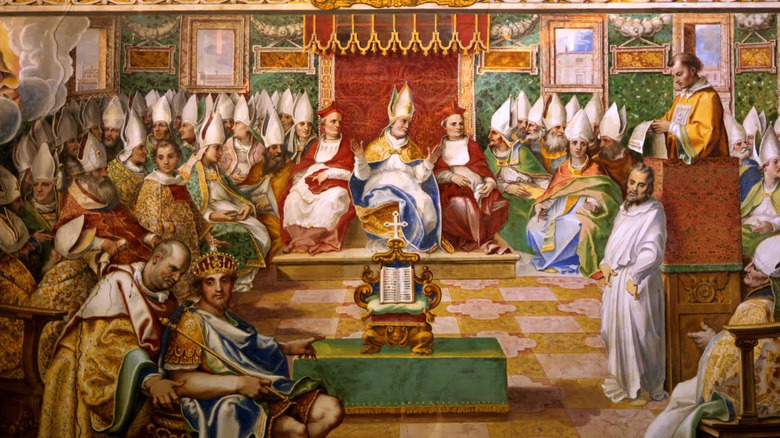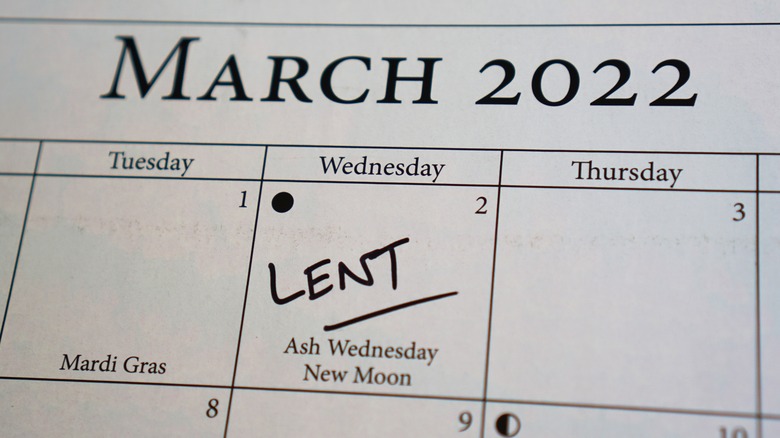The Real Reason Easter Changes Dates
Easter is one of those holidays that can be hard to get a handle on. One year it's in March and the next year it's in April and there doesn't seem to be any regularity like with most other holidays. What's going on here?
To get a handle on this calendrical oddity we first need to understand Easter. At its simplest, Easter is a commemoration of the resurrection of Jesus Christ. That resurrection took place on a Sunday, and in remembrance of this, Easter is always held on a Sunday. Where things start to get tricky is determining precisely which Sunday of the year it should be held on.
In the early years, Easter celebrations were explicitly tied to the Jewish festival of Passover. Jesus' crucifixion occurred three days after the Last Supper, which is said to have been the Passover feast, as Biblical Archeology Society suggests. The day after the feast starts the official holiday of Passover so commemorating the anniversary of the resurrection is straightforward in the Jewish calendar.
For early Christians, it was just a matter of combining these two traditions and so the first Easters were the first Sunday following the Passover meal (via Britannica).
It's never that simple
The date for Passover is the same every year, at least if you follow a lunar calendar. It's always on the 14th day of the first month of the Jewish calendar: Nisan. The problem with lunar calendars is that they don't integrate with solar calendars very well in the long term. This means that sometimes the festival of Passover can happen before the spring equinox which was a problem for some groups, according to the Church History of Eusebius.
It's also relevant to mention that the early fourth century church was a hot mess. It was a time of schisms, sects, and internecine conflict. Something had to change, and the man to do it was the most powerful Christian of the era: Constantine the Great. His solution was to convene the greatest theologians of the day to settle the most contentious issues of the day. That gathering of church leaders is known today as the Council of Nicaea (via New Advent).
The first order of business was to completely disassociate Easter from the Jewish calendar because Constantine believed the Jewish people "unworthy" of sharing the holiday. Many churches at the time celebrated on the day of Passover which always falls on the day of a full moon. And from here, we have the three elements of modern Easter: It must be after the Spring equinox, after a full moon (so it's not Passover), and on a Sunday.
More than just Easter
The Council of Nicaea decreed that the vernal equinox would always be observed on March 21 so the earliest date possible date for Easter is March 22 in the case that the 21st is a full moon and the 22nd is a Sunday. If, however, the full moon falls on April 18 and it also happens to be a Sunday, Easter won't be until April 25, the latest possible date (via EarthSky).
But, Easter isn't the only Christian holiday subject to the orbits of the spheres. The 40 days of fasting which lead up to Easter, known as Lent, are anchored by the same astronomical rules, and by extension, so are Mardi Gras and Carnevale — the period of excess in advance of Lent (via Old Farmer's Almanac). In the other chronological direction, Pentecost is celebrated seven Sundays after Easter.
This year, the first full moon after March 21 occurs on April 16 which is a Saturday. The first Sunday following that full moon is the next day which means Easter 2022 will be April 17.


